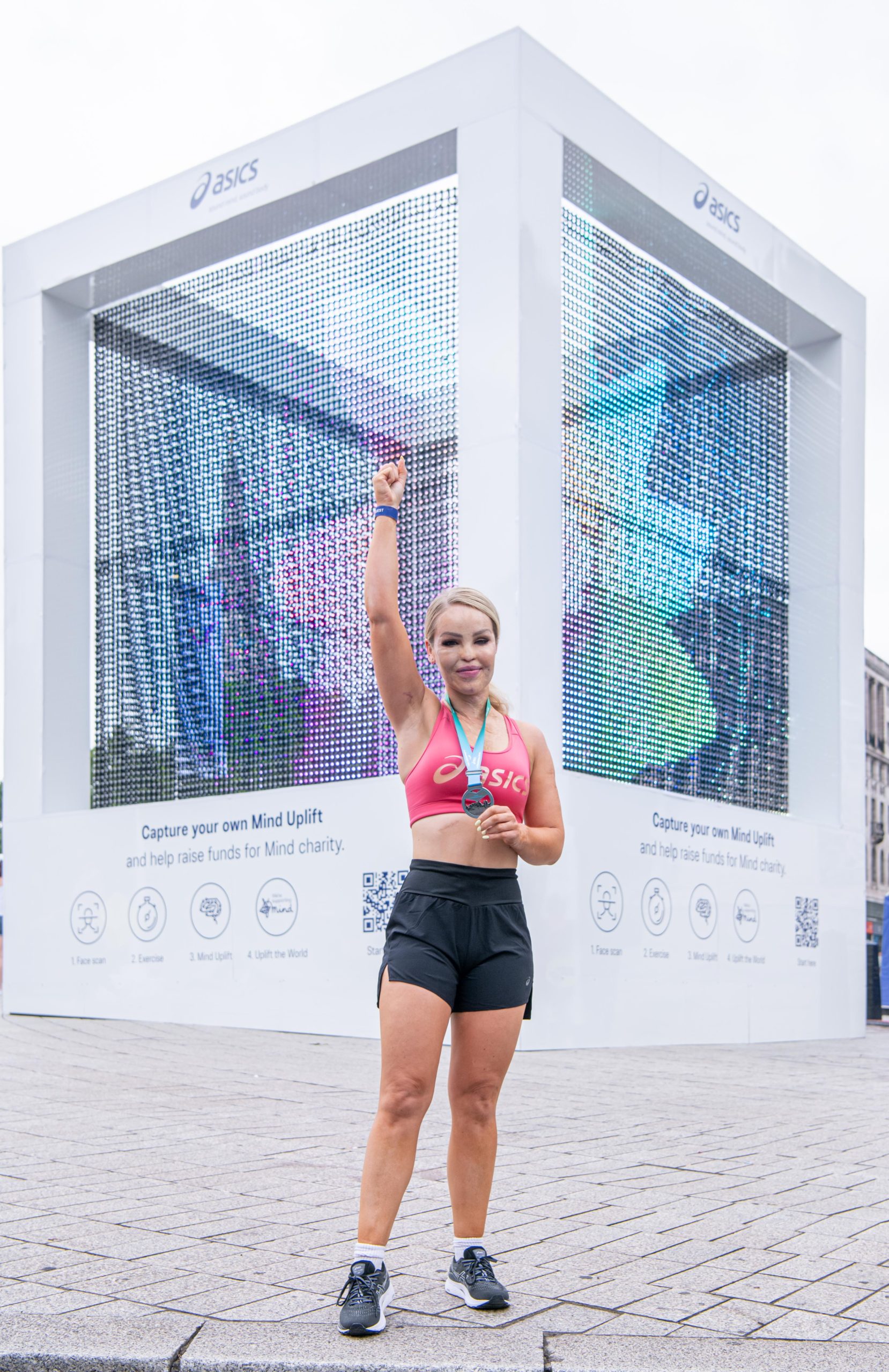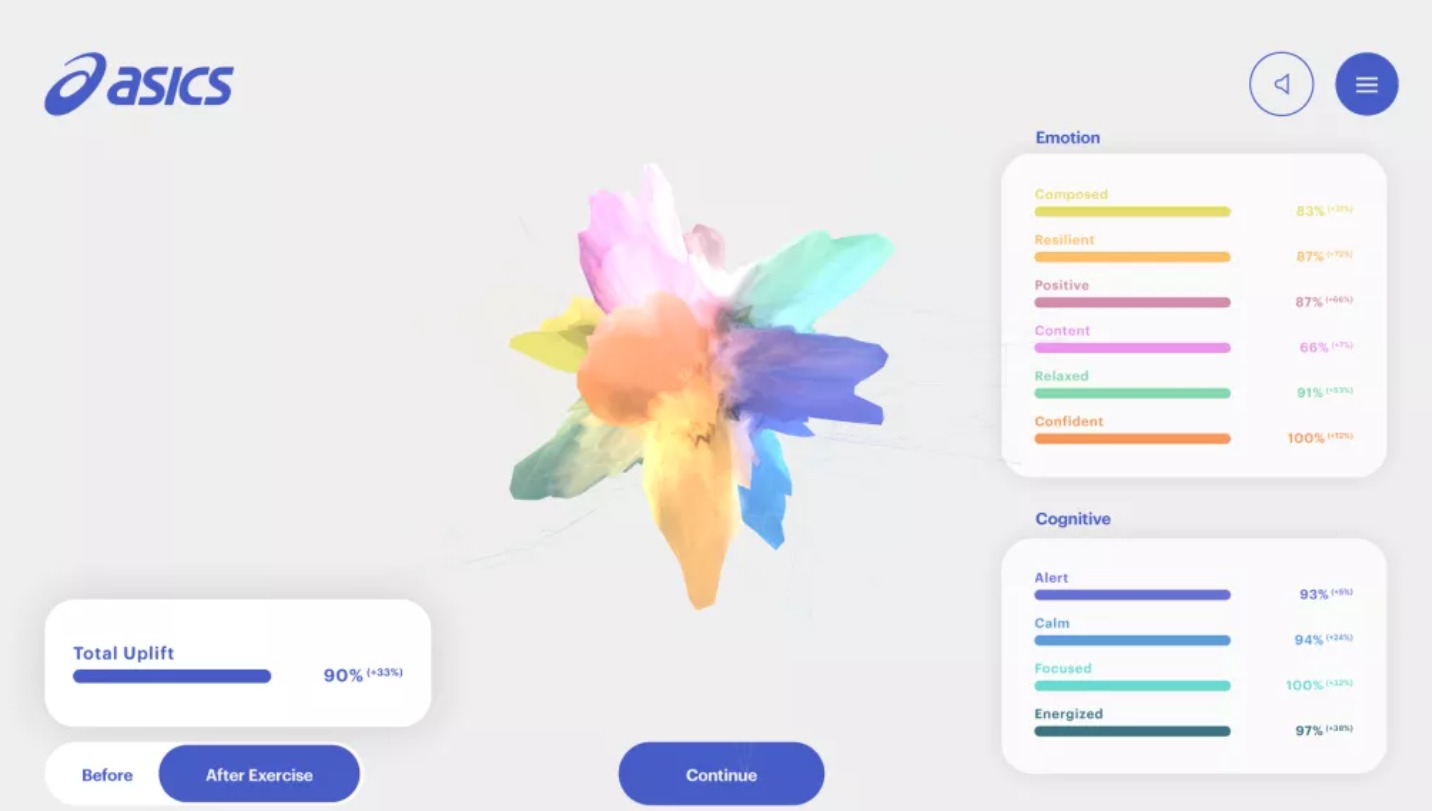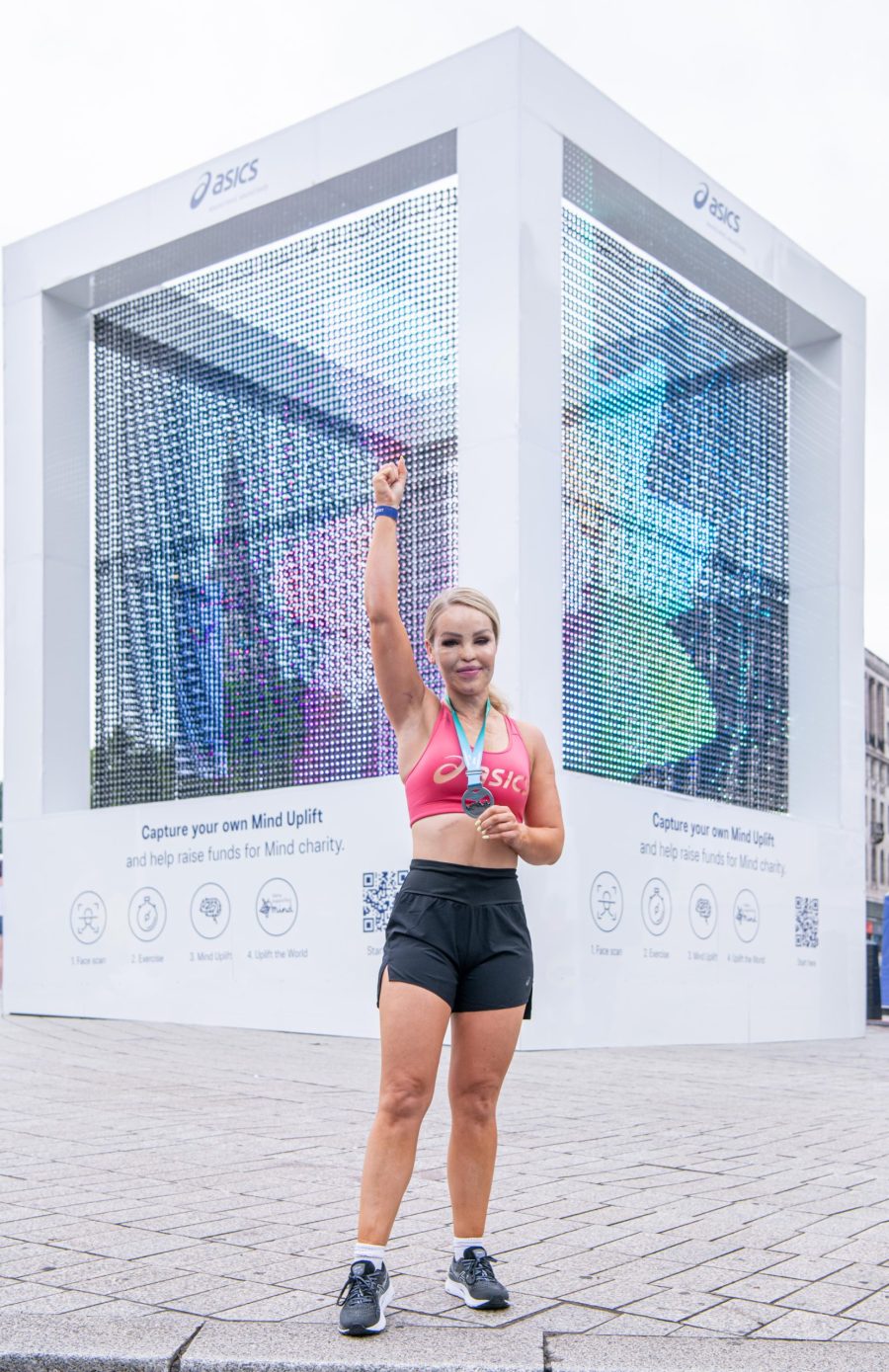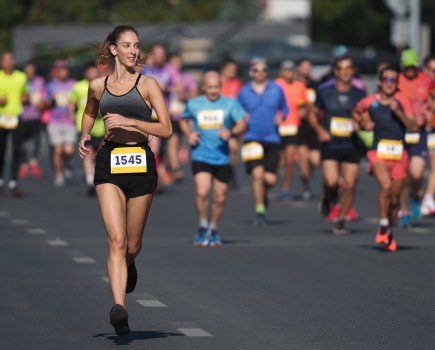Activist, author, podcast host and mum-of-two, Katie Piper, tells us about her passion for running and why it’s her choice of therapy.
By Jo Ebsworth
Tell us about your running journey?
Katie Piper: ‘After sustaining my burns injuries and being in a coma, I was at my most unfit and suffering with muscle wastage. I realised how important my health was, but I was living alone, feeling isolated and lacking in confidence. Going to the gym didn’t appeal to me, so I decided to give running a go because you don’t have to speak to people.
Katie Piper: ‘After sustaining my burns injuries and being in a coma, I was at my most unfit.’
‘I started out walking the 4k distance between my flat and my office, which turned into walk/running, and then one day I became like Forrest Gump and just kept on running. Soon after, I felt ready to do a parkrun and start speaking to people, and I’ve gone on to do lots of mass participation events including 10ks and half marathons.’
What benefits do you enjoy from running?
Katie Piper: ‘In the beginning, I noticed my improved physical fitness really helped with my recovery during reconstructive surgery in relation to my bloods, oxygen, lung capacity and skin.
‘Running also gave me more energy and stamina at a time when my career was taking off, and my overall discipline in life improved; I was more organised and curbing bad habits, such as not having that bottle of wine if I knew I was running in the morning.
‘Mentally, I think I became more rational and less reactive. I found it cathartic. Running was my form of therapy and it made me a better person. These days, running and sweating is where I find my stillness.’
How was your first post-lockdown running event?
Katie Piper: ‘I recently ran the Asics London 10k event and the atmosphere was like no other. Everyone was using the Asics Mind Uplifter tool and there was a real focus on mental health and wellbeing, which I think everyone could relate to after lockdown.
‘I ran with a squad of other burns survivors from my charity, The Katie Piper Foundation, and there were a lot of other people wearing different charity tops. I noticed a big difference from previous years in that there was a big increase in people running for mental health and domestic violence charities – really topical charities that have been in the foreground of people’s minds of during Covid and lockdown.’

Katie: ‘Running also gave me more energy and stamina at a time when my career was taking off, and my overall discipline in life improved.’
What made the event so special?
‘The very essence of running is freedom. So, after 18 months of restrictions, it was incredible to run at an event and see everyone looking so happy. This included all the volunteers who help to make the day so great.
‘It really restores your faith in society, seeing all the good and kindness in people. I actually cried when I finished because I hadn’t known if I’d get to do anything like that again!’
Tell us about the Mind Uplifter tool you used?
‘The Asics Mind Uplifter is a scientific tool that measures the emotional and cognitive benefits of exercise on your brain, and all the participants used it on the day.
‘Before you engage in any physical activity lasting 20-minutes or more, you scan your face then answer some questions about how you’re feeling. Then, you repeat the process when you’ve finished exercising to see how your mood and brain activity has been improved with exercise.
Katie Piper: ‘The Asics Mind Uplifter is a scientific tool that measures the emotional and cognitive benefits of exercise on your brain.’
‘With me, it accurately revealed that I was feeling stressed before the race. (I’m out of practice juggling children and school with work and everything else). It also showed that I was less anxious and more emotionally balanced afterwards. That’s why I run in the first place!’

Katie: ‘I think too much emphasis is placed on running to lose weight or creating a calorie deficit.’ Photo Featureflash Photo Agency / Shutterstock.com
Do you think people don’t focus enough on the mental health benefits of exercise?
Katie Piper: ‘Absolutely. The reason I’m supporting the tool is because I think too much emphasis is placed on running to lose weight or creating a calorie deficit. Or there’s the other side where running can be really competitive. It’s all about times and distances and using sharing apps to show you were faster than other people. I think that approach can take the joy out of running.
‘Instead, it should be all about feeling good in yourself and using running to boost your mental health, stay sane, get away from your husband and kids for a bit, and enjoy some fresh air and green scenery.
Katie Piper: ‘Running should be all about feeling good in yourself.’
‘I feel the tool really supports the idea that exercise is always there to give you access to therapy anytime. It reminds us that you don’t always have to measure the outcomes to appreciate the benefits.’
What motivational advice would you give to running newbies?
Katie Piper: ‘I believe that running is one of the only sports that doesn’t discriminate. Everyone can give it a go. It’s free, no one owns the streets more than anyone else, and no one has more of a right than you to be there. So, just give it a go and do it!
‘It’s not about getting to a certain level so you can tell people about it. If you run one or two kilometres – and you release endorphins and feel empowered – you will run more the next time and that will escalate and escalate.
Katie Piper: ‘Running is one of the only sports that doesn’t discriminate.’
‘If my starting point was coming out of a coma to running a half marathon – and I was never what you’d call a fit person in the first place – then you can break down those barriers in your head, too. And on a practical level, don’t forget to invest in some good trainers and good socks!’

Photo: Asics 2
About ASICS:
ASICS is on a mission to show how movement can lift our mood by creating a world-first study into the positive relationship between sport and the mind. To see the impact of movement on your mind and participate in the study:
- GO to minduplifter.asics.com to capture your Mind Uplift
- SCAN your face to read your emotional state
- ANSWER scientifically developed questions to gauge your brain function
- COMPLETE at least 20 minutes of exercise to uplift your mind
- REPEAT steps two and three
- GET your Mind Uplift results and SHARE them on your social channels using #UpliftingMinds
- SEE how your results contribute to the World Uplift Map







